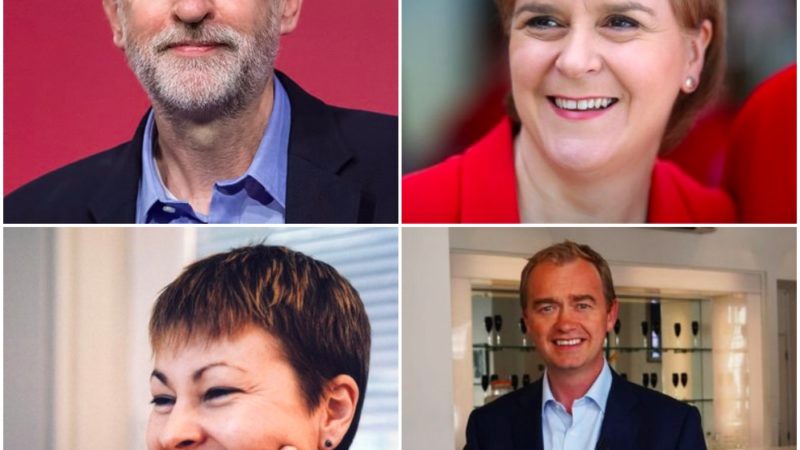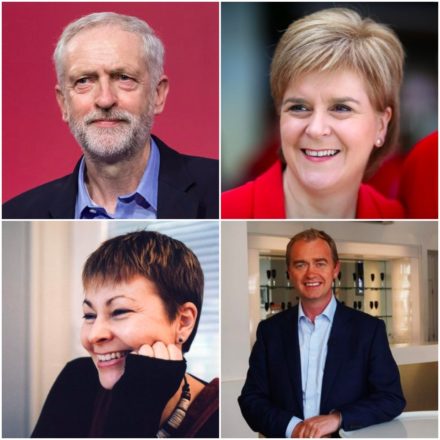

I’m bemused by the call by Clive Lewis and Jon Cruddas for Labour to stand down and give the Greens a free run in the Brighton Pavilion and Isle of Wight constituencies.
What is the point in calling for this at a stage in the campaign when Labour has already selected candidates for these seats, and when the national executive committee (NEC) has a clear policy that every seat is always contested?
I can understand wanting to appeal to people who currently vote Green. Whilst they are thin on the ground in the vast majority of constituencies they are a significant demographic in a number of places such as Bristol, Brighton, Cambridge, Oxford, Norwich, and, in London, Camden, Hackney and Islington. As I’ve lived in three of those places, I probably have a lot in common with them. With my wife Linda Smith, who saw off the Greens in Clissold ward in Hackney, I analysed who voted Green and how to win in these areas in 2011.
Putting together an impressive green section of our manifesto to attract Green voters makes sense – whilst we are never going to be more green than the Green Party, Labour should have the strong policies on the environment. And appealing to Greens to vote tactically to stop the Tories is also just common sense politics – we’ve been trying to tactically squeeze third placed parties ever since the 1920s. And we need to attack them when their behaviour and policies are wrong just as we would Tories and Lib Dems – particularly in Brighton we can expose their chaotic mismanagement and anti-trade union stance when they ran the local council.
Maybe I misunderstood it but I thought Jeremy Corbyn’s strategy was to scoop up the entire 3.8 per cent of the vote that the Greens got in 2015 and get them all voting Labour, a kind of triangulation to our left?
What doesn’t make sense is a deal with them where we withdraw candidates.
Voters hate this kind of deal to restrict their choice and herd them around as though they were a block that can be traded seat-by-seat between parties.
Every voter deserves to be able to express their support for Labour at the ballot box, however hopeless the seat, and we know from 2010 that the coalition negotiations were influenced by the national vote share each party got, so on some level Labour votes count even where we lose.
Whilst some Labour voters might feel comfortable with voting Green if Labour is not available, confronted with a Green Party that is anti-industrial and hence anti-jobs, has cranky views on defence and foreign policy, and has very little cultural connection to ordinary working people, some of our core vote might prefer the Tories or UKIP.
The seats where the Greens are strong are ones where they are in competition with Labour, not the Tories. They gained Brighton Pavilion from Labour. We are in second place there on nearly 15,000 votes and we need to win it back. They are threatening a really impressive Labour MP in Bristol West. Isle of Wight is a red herring – they only got 13.4 per cent of the vote there. The council seats they target are invariably Labour ones not Tory. When councils are hung, their record is overwhelmingly to form anti-Labour coalitions with the Tories and Lib Dems, not Red-Green ones with us. Caroline Lucas MP has built a career entirely on attacking and taking Labour seats at council and parliamentary levels. Clive’s stance is even stranger given he is a Norfolk MP, in a county where the Green group abstained in a vote on the county council Leader in 2016, allowing the Tories to take back control from an anti-Tory coalition.
Whilst Green voters are progressives who should be persuaded to vote Labour, the Green Party sees its mission not to be an ally or auxiliary to Labour but to replace us in the post-industrial era, just as Labour replaced the Liberals in the era of industry and the mass franchise.
A backroom deal with them risks bringing a Trojan Horse into parliament in exactly the same way that the 1903 Gladstone-MacDonald pact, divvying up seats between the Liberals and the then small Labour Party, backfired on the Liberals by bringing Labour into parliament as a strong enough force to eventually supplant them.
Strategies based on pacts with minor parties and illusory “progressive alliances” are a way of dodging the real question – which is how to restore Labour to being a hegemonic political force – a progressive alliance contained in one party – able to assemble the coalition of 40 per cent or more of voters needed to form a majority government. Whilst every extra vote is useful, it isn’t the four per cent Green voters to our left that hold the key to 10 Downing Street, it’s the 55 per cent currently saying they will vote Tory or UKIP.




More from LabourList
Antonia Romeo appointed to lead civil service as new Cabinet Secretary
‘If Labour is serious about upskilling Britain, it must mobilise local businesses’
Stella Tsantekidou column: ‘What are we to make of the Labour Together scandal?’